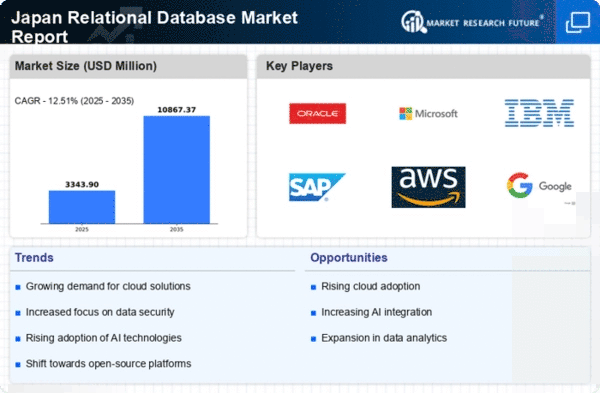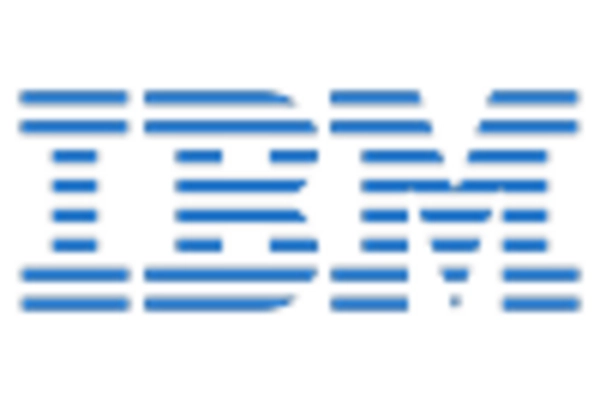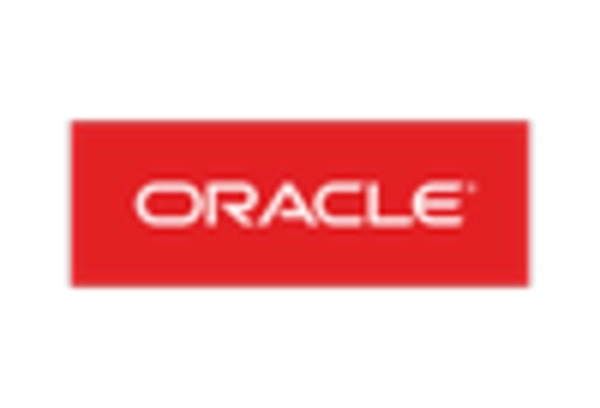Expansion of Data-Driven Decision Making
In Japan, the relational database market is witnessing a transformation driven by the expansion of data-driven decision-making practices across various industries. Organizations are increasingly recognizing the value of data as a strategic asset, leading to heightened investments in relational database systems that facilitate advanced analytics and reporting. This shift is particularly pronounced in sectors such as healthcare and manufacturing, where data insights can lead to improved operational outcomes and competitive advantages. Recent statistics indicate that approximately 70% of Japanese companies are prioritizing data analytics initiatives, which is expected to bolster the demand for relational database solutions. As businesses strive to harness the power of data, the relational database market is likely to evolve, offering more sophisticated tools and functionalities to meet these emerging needs.
Growth of E-Commerce and Digital Services
The rapid growth of e-commerce and digital services in Japan is significantly impacting the relational database market. With the increasing number of online transactions and digital interactions, businesses are seeking robust database solutions that can efficiently manage vast amounts of data. The e-commerce sector alone has seen a remarkable increase, with online sales projected to reach ¥20 trillion by 2025. This surge necessitates relational databases that can support high transaction volumes while ensuring data integrity and security. Consequently, vendors in the relational database market are likely to innovate and enhance their offerings to cater to the specific needs of e-commerce platforms, thereby driving market growth. The interplay between digital transformation and relational database technologies is expected to shape the future of the market in Japan.
Emphasis on Data Governance and Compliance
As regulatory frameworks surrounding data governance and compliance become more stringent in Japan, the relational database market is adapting to meet these challenges. Organizations are increasingly required to ensure that their data management practices align with regulations such as the Personal Information Protection Act (PIPA). This has led to a heightened focus on relational database solutions that offer robust security features and compliance capabilities. Recent surveys indicate that over 60% of Japanese enterprises are prioritizing data governance initiatives, which is likely to drive demand for relational database systems that can facilitate compliance and mitigate risks. The emphasis on data governance is expected to influence the development of relational database technologies, making them more resilient and secure in the face of evolving regulatory landscapes.
Rising Demand for Real-Time Data Processing
There is a notable surge in demand for real-time data processing capabilities in Japan. As businesses increasingly rely on timely insights for decision-making, the need for databases that can handle high-velocity data streams has become paramount. This trend is particularly evident in sectors such as finance and e-commerce, where the ability to process transactions and customer interactions in real-time can significantly enhance operational efficiency. According to recent data, the market for real-time data processing solutions is projected to grow at a CAGR of approximately 15% over the next five years. This growth is likely to drive investments in relational database technologies that support real-time analytics, thereby shaping the future landscape of the relational database market in Japan.
Technological Advancements in Database Management
The relational database market in Japan is poised for growth due to ongoing technological advancements in database management systems. Innovations such as improved indexing techniques, enhanced query optimization, and the integration of machine learning algorithms are transforming how relational databases operate. These advancements enable organizations to achieve higher performance levels and more efficient data retrieval processes. As businesses seek to optimize their database environments, the demand for cutting-edge relational database solutions is likely to increase. Recent market analyses suggest that the adoption of advanced database management technologies could enhance operational efficiency by up to 30%, thereby driving further investments in the relational database market. The continuous evolution of technology is expected to play a crucial role in shaping the future landscape of relational databases in Japan.
















